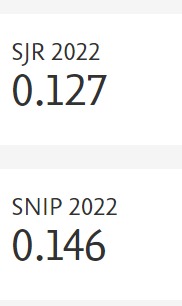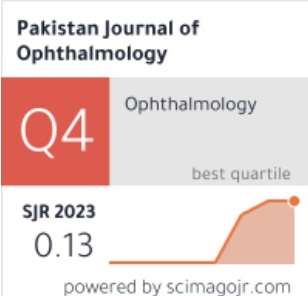Topical Use of Cyclosporine in the Treatment of Vernal Keratoconjunctivitis
DOI:
https://doi.org/10.36351/pjo.v27i3.480Abstract
Purpose: To study the efficacy and safety of topical 2% cyclosporine in patients with vernal keratoconjunctivitis.
Material and Methods: This is a placebo-controlled, clinical trial to evaluate the effects of topical 2% cyclosporine on patients with vernal keratoconjunctivitis. Twelve patients were placed in the cyclosporine treatment group and eight patients were placed in the placebo group. All patients had a wash out period of one week in which they were advised not to instill any eye drop. After this period, patients underwent a detailed ophthalmic examination with specific note being made of itching, tearing, photophobia, mucous discharge and foreign body sensation. Specific signs looked for on slit lamp biomicroscopic examination included conjunctival hyperemia, punctuate keratitis, trantas dots, limbal edema and papillae. Patients were assigned at random to one of the study groups, either cyclosporine 2% eye drops or placebo eye drops administered four times daily to the both eyes. Patients were examined weekly for a total follow-up period of 6 weeks.
Results: There were 18 males and 2 females in the study. Patients had mean age of 11.6 years (range 7 to 19 years). There was a statistically significant decrease in symptoms and in the conjunctival hyperemia, punctate keratitis, and Trantas dots in the group of patients treated with cyclosporine. No adverse effects were noted in the cyclosporine treated group.
Conclusion: Topical cyclosporine appears to be safe and effective for treatment of vernal keratoconjunctivitis.






